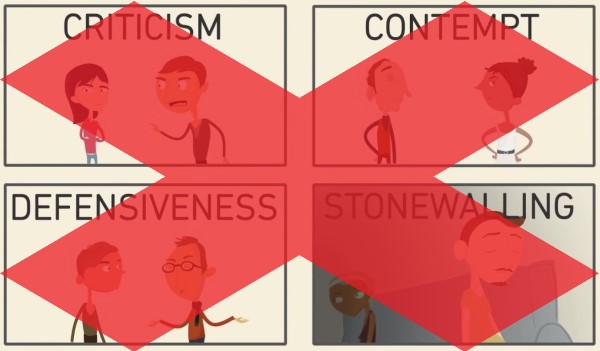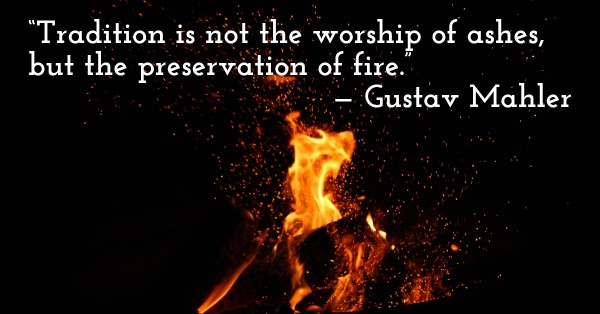“Life is never made unbearable by circumstances, but only by lack of meaning and purpose.” Victor Frankl

Do you have a mission statement for your relationship? No, not the corporate kind about shareholder profitability (snore!). The kind that ques up the Mission Impossible music in your mind! If you don’t, it’s time to create one. Why? Because we know from research that creating shared meaning is essential to continued relationship satisfaction! A mission statement can help you do that. It doesn’t have to be a long term mission, either, but one you can both align on to get you to a destination. I really like Donald Miller’s framing on how to create a mission statement, not just for companies, but for individuals, couples and families. Here is a quick primer on how to create one, including the elements needed to accomplish the mission. These are: define the required key characteristics, the critical actions to take, and a story pitch to remind you of why you are on this mission. This pitch includes a theme for the mission, its foundation.

The statement is just the start. What characteristics does this couple need to accomplish this mission? These can be characteristics that need developing, not just ones the couple already has. It is essential only to choose three (about the limit of what we can remember, so keep it simple) and put them in rank order. For our example, the characteristics could be supportive, loving and trustworthy.

Now, what actions does this couple need to take to be a safe harbor for one another? These must contribute to the mission and be repeatable. As with the characteristics, keep them simple and maximum three. For our couple looking to manage stress, the critical actions could be: 1) Have a daily stress-reducing conversation. 2) Keep communication positive (i.e., without the four horsemen). 3) Have rituals of connection that relieve stress, like taking an evening walk together.
The last element is a story pitch — like in Hollywood! The pitch helps to remind you of the reason you are doing this and helps to keep you energized around your mission. The pitch for our couple: “We know life can be stressful, which can cause irritability, burnout, and conflict. That’s why we will help one another to manage stress so that we are calm and successful no matter what life throws our way.” Did you catch the theme at the end there? The theme is the why of what you’re doing. Your theme should include two components, 1) a truth put into action 2) that creates a result.
So there you have it — a mission and everything you need to accomplish it! In his podcast, Donald Miller gives an example of a family mission about spring cleaning and a garage sale that benefits a charity. So give it a listen for another detailed example.
Creating a mission statement with all the bells and whistles is a fabulous date night activity. And it doesn’t have to be just one conversation. Create an outline of each of these steps and develop them over a few weeks. Perhaps make creating a mission statement your first mission!
A Survival Kit for Your Relationship

A Survival Kit for Your Relationship
Our exclusive guide — Lockdown driving you crazy? Don’t strangle your partner, try this instead… is packed with information to help you and your partner come out of the pandemic with a stronger relationship.
Remember the Four Horsemen of the Apocalypse? No, not the ones in the Bible. The other ones, those that can ruin relationships. Yup, in what can feel like apocalyptic times, there are relationship meltdown points Dr. Gottman calls the Four Horsemen of the Apocalypse. These are criticism, defensiveness, contempt, and stonewalling. You must get rid of them. Why? Because they predict divorce more reliably than anything else. Thus the apocalypse of your relationship if not addressed. Just working on eliminating them will do wonders for your relationship. And contempt is the worst of them!


The antidote to contempt is to describe your feelings and needs. When tempted to put your partner down, stop. Instead, take a moment to figure out what is going on. Ask yourself, “Am I angry? Irritated?” It may be that you need to have a conversation with your partner about that, instead of calling them a name. For this, use the softened approach. The formula is: “I feel about . I need ”. Start the conversation with something like, “I’ve been feeling irritated about how money is being managed. I need us to talk about how to handle all these expenses.” Working on creating a culture of respect and appreciation in your relationship will also go a long way to making contempt a thing of the past. Look for the things you appreciate and share them with your partner; this can make a big difference!
“Communication is a skill that you can learn. It’s like riding a bicycle or typing. If you’re willing to work at it, you can rapidly improve the quality of every part of your life.” Brian Tracy

A Survival Kit for Your Relationship

A Survival Kit for Your Relationship
Our exclusive guide — Lockdown driving you crazy? Don’t strangle your partner, try this instead… is packed with information to help you and your partner come out of the pandemic with a stronger relationship.
!['So many frustrating family dynamics and workplace dramas erupt because of the misplaced belief that manipulation [of] motivation is the key to changing behavior. But … simplicity is what reliably changes behavior.' — Dr. BJ Fogg](/images/Blog-Images/marc-szeglat-VbP9v1rh-sc-unsplash.jpg)
If you’re anything like me, hearing “tiny habits” might make you think small means weak. It turns out the opposite is true! Dr. BJ Fogg talks about creating tiny habits in his book, “Tiny Habits: The Small Changes that Change Everything.” Baby steps are essential in building new ways of, well, anything really, including new ways of interacting with one another. But don’t resort to the old standby of nagging your partner into submission! It is essential to keep in mind that creating positive interactions will do more for making changes than anything else. This is the idea behind “small things often,” which comes out of the research of Dr. Gottman. He learned this from watching successful couples interact in healthy ways. Whether it is in making tweaks to how you have conversations or making intimate moments for frequent, small positive interactions, tiny is the way to go!
The first thing to learn is how to compose a tiny habit recipe. Here’s the general formula: After I … (choose an anchor moment), I will … (the tiny behavior); then, I celebrate (your choice)! All you have to do is figure out what these three elements need to be for the habit you want to create. The first element is to identify an anchor moment. This is an existing routine or event in your life that will remind you to do the tiny behavior (the second element). This tiny behavior is a scaled-back version of the new habit you want to develop; it should be super small and super easy. One way to think about it is what is the first step you would take to perform the action. Then you get to decide how to celebrate immediately. This could be by smiling, doing a slight head nod, visualizing fireworks, inhaling and thinking of energy coming in, whatever works for you. This is important, as the celebration is what gets your brain interested in repeating the tiny behavior in the future.
You can now create tiny habits with your partner to boost moments of connection in your life! To get you started, here are some examples of how to use the recipe for making tiny habits that improve your relationship:
- After we get into bed, we will kiss one another for six seconds. Then we will bask in the moment of closeness a moment more, nose to nose.
- After I notice my partner doing something positive, I will say how much I appreciate it. Then I will give them a quick hug.
- Or how about this one: When my partner irritates me, I will remind myself of one quality I admire in my partner. Then I will imagine a gentle glow around me.


You get the idea. Note that tiny habits do not have to be done as a couple (as with the kissing example). They can be a habit one partner does that is positive for the relationship (as the last example). Have a conversation together about what you want to try. This is a great way to increase intimacy, whether you decide on one to do as a couple or not. If you fancy diving deeper into tiny habits, head on over to tinyhabits.com.
Get more like this straight to your inbox!
Plus our exclusive guide Things your mama never told you about talking dirty…
In this time of global concern and stress, it is worth taking a moment to make sure we are taking care of ourselves and our families. Part of this is taking care of our mental health, which means managing the stress as effectively as we can.
“The vast majority of cases are going to be mild, and people are going to recover just like they do from a cold or flu-like illness.”
— Dr. Amesh Adalja
Senior Scholar at the Johns Hopkins Center for Health Security

Below are some links to resources that could be helpful. I want to briefly outline the tips that the California Association of Marriage and Family Therapists put together. Their public service announcement is aimed at reducing anxiety and stress during this time:
- Practice acceptance. It is normal to feel uneasy at this time. Allow for your feelings and also allow for the fact that most of us are not in immediate danger, that we’re working together to find solutions.
- Make a plan. Comfort yourself by controlling what you can, like washing your hands. Check out the Red Cross Coronavirus Safety and Readiness Tips, and share your readiness plan with your family.
- Stay in the present moment. When we bring our mind into the present, we realize that we’re ok. Make sure your mind is where your body is. Use a mantra, if that’s helpful—“This too shall pass.” Meditate. When you feel overwhelmed, turn your attention to your five senses to ground yourself.
- Don’t overexpose yourself to the news. Repeatedly viewing or listening to the same scary story can push your nervous system into full panic mode. Schedule just a few times a day to turn on the news or look at the internet for about 20 minutes at a time. Set a timer to keep yourself from fixating on the scary stuff.
- Pay attention to your body. Our brains and our bodies are intricately connected. We feel better emotionally when we feel physically rested. Make sure you are eating healthy, getting a little exercise, and practicing good sleep hygiene. See if you can find a part of your body that feels at peace and calm. Sit with it a bit, see if you can visualize or describe the sensation—maybe it’s a shape, a color, a sound… Check-in with yourself a couple times a day in this way.
- Practice deep, slow breathing. When you practice this, you’ll feel less anxious because your lungs will send a message through your vagus nerve to your brain that all is well. Breath in for a count of six, breath out for a count of six; do this for one full minute or more.
- Stay connected. We are biologically wired to connect with one another, there is real healing in connection. Make sure you’re not isolating more than necessary. Use technology to your advantage, using video chats and other means, as appropriate. Instead of social distancing, think physical distancing.
- Keep a balanced perspective. Even in the most challenging times, we can find a few aspects of our lives that are going well. If you realize you haven’t laughed or smiled in a while, watch a funny show or call a friend who makes you laugh. Even amid a crisis, we can find silver linings.
The only other thing I will add is to support one another in your relationship as much as you can. The best way, at this point, is to practice having a stress-reducing conversation. For tips on how to do this, see the blog Holiday Survival Kit, the last bullet point. If you find yourself in conflict with your partner (e.g., differences of opinion as to how much you should be going out), be sure to discuss things calmly. It is essential to avoid the four horsemen—see 3 Ways To Stay Calm When Your Partner is Driving You Nuts!; How to Get Rid of Criticism and Defensiveness; and Contempt, the Battery Acid for guidance around this. If it feels like the discussion has turned into one that is all too familiar, it may be a perpetual issue. In this case, talking about it in a specific way is important—see Do the Same Arguments Keep Coming Up Again and Again With Your Partner?
Here are a few reminders and suggestions for talking to your partner if you find you’re feeling frustrated and misunderstood:
- Remember, your partner has good intentions, and your partner loves and values you!
- When you’re feeling overwhelmed, you’re likely to be more reactive, and it’s much harder to connect with your partner. Practice grounding yourself first, by understanding how your body feels and what your core emotions are (the ones underneath whatever irritation, anxiety, or anger you may be experiencing).
- Ask your partner what his/her perspective and emotions are, being intentional about listening to understand, not listening to respond. Your partner has valid feelings about this, too! Your emotions and your partner’s underlying emotions make sense—focus on learning how.
- During and after listening to your partner share, reflect back what you heard him/her say to check for accuracy. Invite your partner to add or clarify.
- Validate your partner’s perspective and emotions (make sure to ask what he/she is feeling!): “It sounds like you’re feeling because . That makes sense to me! (or:) I would feel that way if I were in your shoes.”
- Switch roles and have your partner listen while you share.
Phew! That’s a lot of information! My hope is that you and yours stay healthy and that we pull together to make it through this challenging time as safely as possible.
My thanks to Wren Gray-Renebrg, AMFT (AMFT 109983), for her contributions to this blog.
A Survival Kit for Your Relationship

A Survival Kit for Your Relationship
Our exclusive guide — Lockdown driving you crazy? Don’t strangle your partner, try this instead… is packed with information to help you and your partner come out of the pandemic with a stronger relationship.
Helpful Resources
California Department of Public Health:
Centers for Disease Control and Prevention:
Red Cross:
- Coronavirus: Safety and Readiness Tips for You
- Steps to Help Cope with Evolving Coronavirus Situation
- What You Should Do If Caring for Someone with Coronavirus
CAMFT (California Association of Marriage and Family Therapists):
NPR:
- Just For Kids: A Comic Exploring The New Coronavirus
- COMIC: I Spent A Day In Coronavirus Awareness Mode. Epidemiologists, How Did I Do?
The Mesothelioma Center has a Guide to Coronavirus for Cancer Patients
There is also good news around all this. Peter Diamandis has been collecting some of these stories, so tune in for the positive as well.
If you want to give meditation a try, Headspace is making available a Weathering the Storm collection, free for everyone. It includes meditations, sleep, and movement exercises to help you out.
BJ Fogg, Director of the Behavior Design Lab at Stanford University and author of Tiny Habits, is offering Tiny Habits for Coronavirus Challenges.
If you need support from a mental health professional, and you are in California, you can contact me for my availability. I also offer telehealth as a remote option. You may also contact Wren Gray-Renebrg, or reach out to one of these resources to find a therapist near you:
Get more like this straight to your inbox!
Plus our exclusive guide Things your mama never told you about talking dirty…

Why should you care about rituals? Well, for starters, they are necessary to have in any healthy relationship. Like it or not, we are creatures of habit. Making sure you have healthy habits in your relationship—practices you can count on to stay connected with your partner—is essential. We call these rituals of connection. Bill Doherty first coined this term in his book The Intentional Family.

 Rituals of connection work best if they are thought out and planned. Here’s what to think about: When will the ritual happen? How often? Where? Who will initiate it? How will it unfold? How will it end? Here is what I recommend: Have a conversation with your partner about a ritual of connection you would like to create as a couple. If you would like inspiration, the Gottman Card Decks app has a deck with great ideas to consider, called, aptly enough, Rituals of Connection. Choose one of these and first share with your partner why you chose the one you picked (what’s important about this for you). If your partner agrees with the suggestion, answer the questions above to make practical plans to incorporate it into your relationship.
Rituals of connection work best if they are thought out and planned. Here’s what to think about: When will the ritual happen? How often? Where? Who will initiate it? How will it unfold? How will it end? Here is what I recommend: Have a conversation with your partner about a ritual of connection you would like to create as a couple. If you would like inspiration, the Gottman Card Decks app has a deck with great ideas to consider, called, aptly enough, Rituals of Connection. Choose one of these and first share with your partner why you chose the one you picked (what’s important about this for you). If your partner agrees with the suggestion, answer the questions above to make practical plans to incorporate it into your relationship.
It’s a good idea to have a conversation about rituals of connection regularly, at least once a year. You want to see if there are any changes you wish to make to tailor these to what you need at that moment. For instance, if you think of bedtime rituals, you will realize that these rituals change as children grow. It should be the same in your relationship. Make sure that you have rituals of connection in your life that keep you connected consistently! For other examples of rituals of connection, take a look at these blogs: Holiday Survival Kit, 7 Valentine’s Day Date Ideas, and Is Technology Ruining Your Relationship?
Get more like this straight to your inbox!
Plus our exclusive guide Things your mama never told you about talking dirty…
Stay up to date with relationship tips and more
Plus our exclusive guide Things your mama never told you about talking dirty…


